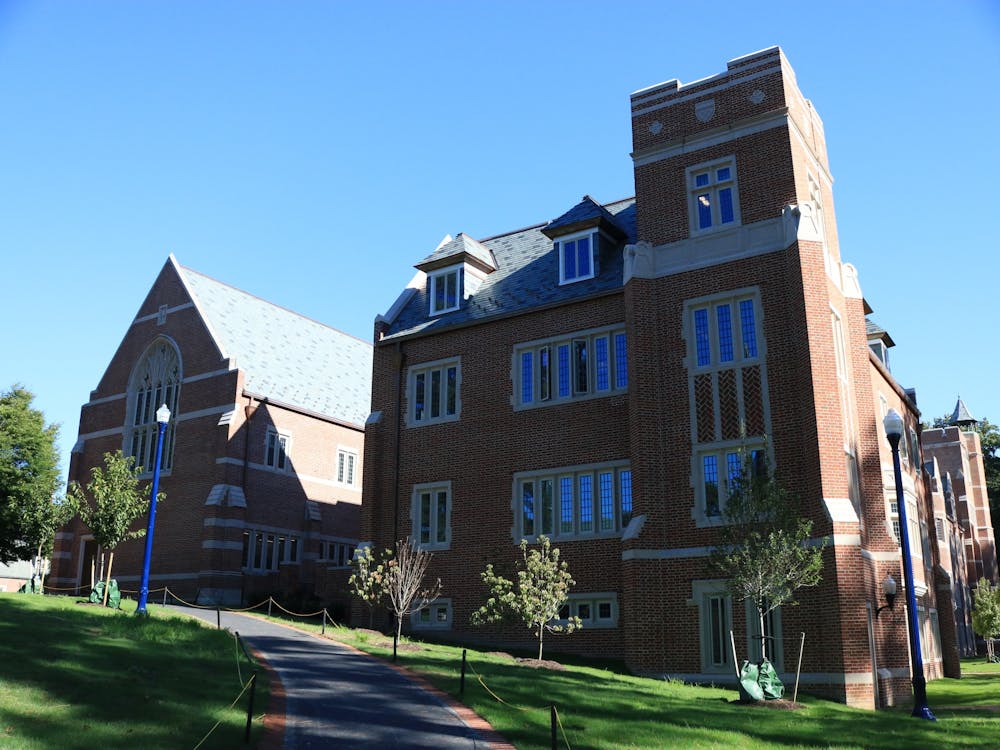The Greater Richmond Transit Company suspended all weekend service and severely cut back the weekday service on the Route 16 Westhampton line that serves University of Richmond, starting last Sunday.
The bus will now run from 5:30 a.m. to 10 a.m. and again between 3 p.m. and 7 p.m. on weekdays. The Route 16 line has always had a low number of riders, especially on weekends and late at night, and has never generated significant revenues for GRTC.
"About a year ago, they were thinking about stopping Route 16 completely," said Carl Sorenson, associate vice president of human resources. "We met with them about different ideas, but none of them worked out until this one, which fits their ridership patterns on the route."
To replace the bus service, university officials have implemented a shuttle service that will drive students and employees from a stop near the Tyler Haynes Commons to two main GRTC bus stops, one at Willow Lawn and Broad Street and the other at Grove Avenue and Thompson Street.
"The intention was to make sure that there was no reduction in service for employees and students," Sorensen said.
About 60 to 70 people depend on the bus to get to campus, including employees of University Dining Services, facilities, students, staff and faculty.
"This affects a lot of different people," said Sarah Allen, a University Dining Services employee.
The shuttles will essentially replace the service that the bus provided to those who depended on it, Sorensen said.
The response to the shuttle has been positive so far in the few days that it has been running. The only complaints were about GRTC running late because of the recent weather, Sorensen said.
Allen and dining services coworker Joyce Williams depend on the bus to get to work every day, and said they were grateful that the university had come up with a solution so they could keep their jobs.
"I know that if the university hadn't done this, I wouldn't have had a job, I would've lost my apartment and I know I would've ended up homeless. It's just a blessing," Allen said.
Even though she said she had to get up a little earlier to catch the two different bus lines to get to the shuttle, Allen felt blessed to still have her job.
Enjoy what you're reading?
Signup for our newsletter
Joe Essid, director of the Writing Center, said he chose to walk or ride his bike to the bus stop to get exercise and to reduce his vehicle emissions. Some of his fellow passengers on the bus told him that they might have lost their jobs had the university not stepped in to fill the gap in service, he wrote in an e-mail.
Senior Karen DeBonis, who lives off campus on Cary Street, said she took the bus to reduce her carbon emissions and would try using the shuttle service because she was often on campus later than 6 p.m. and wouldn't be able to make the bus.
"I plan to try the new school shuttle, but it doesn't go all the way to Boulevard, so it will still require planning for about a 10-minute walk to and from its stop at Thompson and Grove," DeBonis said.
Senior Hayley Swinson, who lives off campus on Boulevard, said she would miss the convenience that the bus provided, but understood that GRTC needed to make the cuts.
"It's convenient to take the bus because you don't have to worry about finding a parking space for your car," she said. Swinson said she used to use the bus if she had to go home for an hour or if she had a meeting late at night, but now the bus doesn't run late enough.
For Glyn Hughes, director of Common Ground, catching the bus will be more of a necessity, because they come less frequently.
"The decreased frequency of the buses makes it harder to catch the bus and the stakes higher for missing the bus," he said.
Hughes said he often met with student organizations that had meetings after 5 p.m. and was grateful that the shuttle was being provided, even though he shared a car with his partner and could usually make alternate transportation arrangements.
Both Essid and Hughes expressed frustration that public transportation was becoming a less viable option.
"I'm distressed at our city for not doing more to help GRTC avoid these cuts," Essid said. "Our University has been a strong supporter of the bus company. I can afford to drive to work ... Many of my coworkers on the bus do not have my luxury. Some may lose their jobs."
By covering the times when the bus does not run, the shuttle will save the bus-dependent university employees from losing their jobs.
"We're fortunate to be at a place where we can pull something like this together," Sorensen said.
Contact reporter Elise Reinemann at elise.reinemann@richmond.edu
Support independent student media
You can make a tax-deductible donation by clicking the button below, which takes you to our secure PayPal account. The page is set up to receive contributions in whatever amount you designate. We look forward to using the money we raise to further our mission of providing honest and accurate information to students, faculty, staff, alumni and others in the general public.
Donate Now


